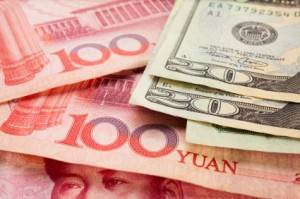 While most of the world's developed nations continue to flounder in debt, an unlikely benefactor has stepped up to the plate with an unexplained offer of assistance. National Development and Reform Commission Vice Chairman Zhang Xiaoqiang told reporters that China is willing to buy bonds from countries struggling under the sovereign debt crisis, echoing the sentiments of Premier Wen Jiabao.
While most of the world's developed nations continue to flounder in debt, an unlikely benefactor has stepped up to the plate with an unexplained offer of assistance. National Development and Reform Commission Vice Chairman Zhang Xiaoqiang told reporters that China is willing to buy bonds from countries struggling under the sovereign debt crisis, echoing the sentiments of Premier Wen Jiabao.
Rather than presenting itself as a one-size-fits-all solution, however, China also stresses the importance of developed nations taking control of their own debt by cutting deficits and opening markets. "?Countries must first put their own houses in order," Wen stated at the World Economic Forum held in Dalian. "?Developed countries must take responsible fiscal and monetary policies. What is most important now is to prevent the further spread of the sovereign debt crisis in Europe."
We then have to ask what China hopes to gain by this generous gesture. Political clout is always a very real likelihood, but the demands on the table thus far seem to focus on gaining a stronger footing in US and European markets. Their main point of interest centers on the acceptance of investment from Chinese corporations, which in turn creates local jobs. This should tie in rather neatly with President Obama's recent focus on job creation. Italy is particularly relieved by the offer, more so if the investment turns out to be a significant amount. Investors, too, responded positively to the news as seen by the stabilization of the markets soon after it was announced"”a feat that was not achieved by the European Central Bank's purchases of Italian bonds over the last 5 weeks for up to EUR 70 billion, according to the Economic Times. Spain is expected to release bonds for sale shortly as well. Also, as part of the solution, Germany and France have pressed upon Greece to adopt deficit-cutting measures and address the problem at its source.
The Financial Times reports that China is no stranger to bonds, having received funding from foreign investors through a rather circuitous route of offshore cells connected to corporations on the Chinese mainland because of China's policies regarding the payment of returns on these investments. If China wishes to have a stronger role in international bonds and investments, perhaps the time has come for its own doors to open to direct foreign investment and returns, thus reducing the risk for foreign investors.
